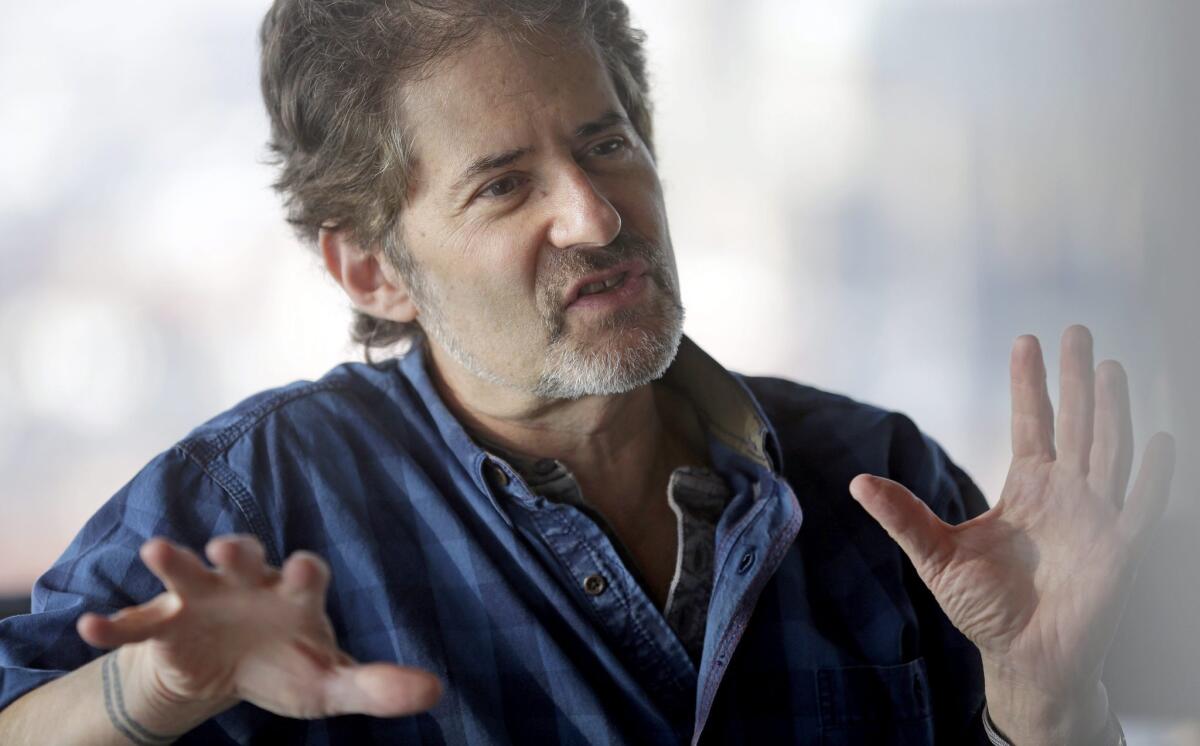Film composer James Horner feared dead: Six of his memorable scores

Composer James Horner worked on such films as “Titanic,” “Braveheart” and “Field of Dreams.”
- Share via
James Horner, the celebrated film composer feared dead in a single-engine plane crash Monday, long considered himself a sonic chameleon.
“A lot of people can’t figure me out,” he told The Times in 1986, during the early part of his career. “They say, ‘Horner doesn’t have any convictions. He’s got no style. He’s all over the place.’ They can’t quite pigeonhole me.”
In the three decades since, Horner demonstrated that, in fact, he had style to spare as he accumulated more than 100 feature film credits and won two Oscars. Here are six of his memorable movie scores.
MORE: Oscar-winning composer James Horner’s death in plane crash confirmed
“Star Trek II: The Wrath of Khan” (1982)
Horner was still a relative unknown when he booked this sci-fi sequel, which has come to be regarded by many fans as the finest of the “Star Trek” movies. Working closely with director Nicholas Meyer, who envisioned a Space Age Horatio Hornblower-type adventure, Horner crafted a nautical-inspired, action-packed score.
While much of Horner’s music serves the clashes between the Enterprise crew and the villainous Khan (Ricardo Montalban), there are also emotional moments underscoring the central friendship between Kirk (William Shatner) and Spock (Leonard Nimoy).
“Cocoon” (1985)
Director Ron Howard’s feel-good tale of a group of elderly folks rejuvenated by benevolent aliens marked one of Horner’s first major dramatic projects, which he gave a whimsical, romantic sound. Horner considered “Cocoon” a professional and personal high point at that stage of his career.
“The film meant a lot to me — I guess I’m sentimental,” he told The Times a year after its release. “It was one of those magical things where everyone shared the same excitement. In a film like that, there are two ideals: the literal story of the boy and ‘Will they escape at the end?’ — and the bigger picture of life and fate. One tries to bring those bigger meanings out, not in a heavy way.”
“Field of Dreams” (1989)
While studio Universal wanted a sweeping score for its Kevin Costner-starring baseball fantasty — something akin to Horner’s work on the animated movie “An American Tail” — Horner and writer-director Phil Alden Robinson envisioned something quieter, more ethereal.
“I thought a big orchestra was the last thing I’d ever attempt to put into ‘Field of Dreams,’” Horner said in a video interview alongside Robinson. Instead, he tried to capture “a sound of an orchestra without it being an orchestra” by scoring much of the film for a small group of syntheszier players. Horner and Robinson also flew in a pair of pan pipe players to lend an airy quality to the music.
FROM THE ARCHIVES: James Horner scored ‘Aliens’ to ‘Legends of the Fall,’ and now: ‘Casper’
“Braveheart” (1995)
Horner, who was born in Los Angeles and grew up in London, was known for incorporating traditional Celtic and Scottish influences in his work, making him a natural choice for actor-director Mel Gibson’s historical epic about the Scottish warrior William Wallace. (Horner also worked with Gibson on “The Man Without a Face” and “Apocalypto.”)
But Horner never let strict authenticity get in the way of a good score. “I used a lot of Japanese drums in ‘Braveheart,’” Horner told The Times in 1999. “Those big battlefield scenes were all done with big Japanese ceremonial drums, low Tibetan droning tubes and Swiss Alp horns to create this sound. So it ends up being not literally Scotland or not literally Africa. It’s an impression of it. It’s like painting.”
1995 was a busy year for Horner: He also scored “Apollo 13,” “Jumanji,” “Casper” and “Balto.”
“Titanic” (1997)
A decade after Horner and filmmaker James Cameron had a falling out on “Aliens” (which nevertheless earned Horner his first Oscar nomination for score), they reunited on “Titanic,” which, of course, became a mega-hit.
The film earned Horner two Oscars: one for his poignant score, featuring uillean pipes, Irish whistles and the wordless vocals of Norwegian singer Sissel, and one for the famous Celine Dion ballad “My Heart Will Go On” (lyrics by Will Jennings).
The “Titanic” soundtrack also topped the charts — an unusual accomplishment for a collection of mostly orchestral music — and became one of the bestselling soundtracks of all time.
FROM THE ARCHIVES: James Horner may add Grammys to his ‘Titanic’ Oscars
“A Beautiful Mind” (2001)
Throughout his career, Horner often came under fire for borrowing motifs from classical composers and his own previous work, and this 2001 Howard film about mathematician John Nash (Russell Crowe) no doubt found the composer squarely in his musical comfort zone. Even so, the score — laced with frenetic piano and strings, balanced by Charlotte Church’s vocals — is a potent synthesis that was recognized with an Oscar nomination.
Follow @ogettell for movie news
More to Read
Only good movies
Get the Indie Focus newsletter, Mark Olsen's weekly guide to the world of cinema.
You may occasionally receive promotional content from the Los Angeles Times.








